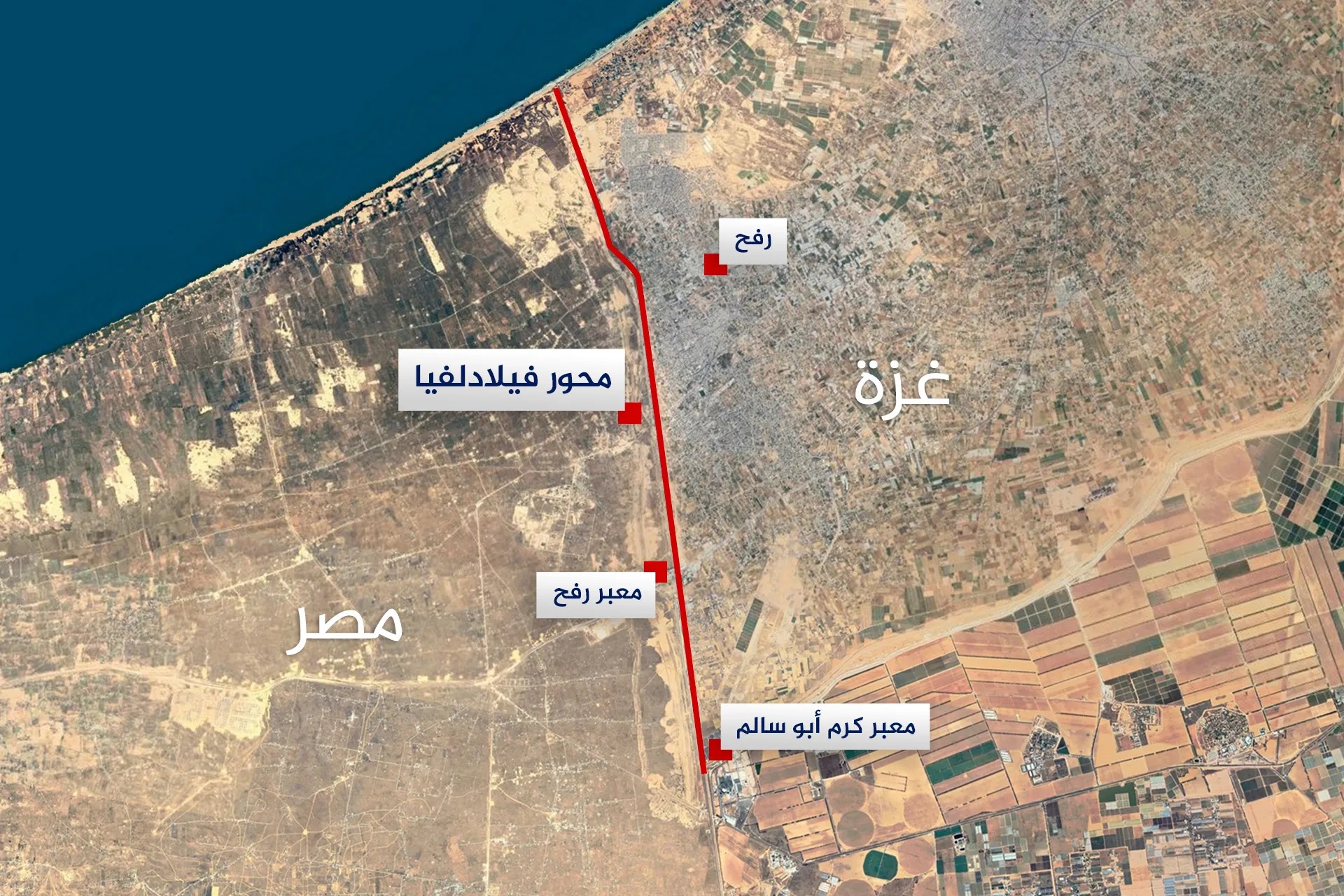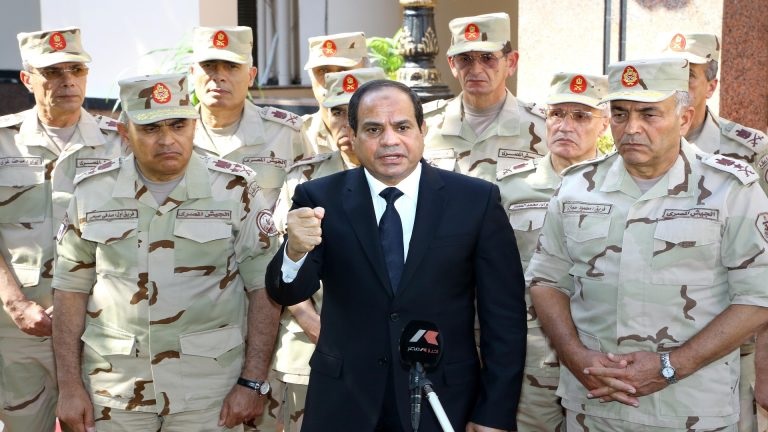Egyptian Military Council Divided Over Response to Israeli Moves on Gaza Border

Watan-News has emerged of disagreements within the Egyptian military council regarding how to respond to the movements of the Israeli occupation in the Salah al-Din axis “Philadelphia” on the border between the Gaza Strip and Egypt.
Informed sources on this matter stated that during a meeting between the Israeli delegation and the Egyptian Intelligence Director Abbas Kamel days ago, Tel Aviv confirmed its determination to carry out a wide-scale ground campaign across the entire territory of the Salah al-Din axis, which falls within Area “D” according to the Camp David agreement.
The sources added that the Israeli delegation informed the Egyptians that executing a ground operation in the Salah al-Din axis was necessary “to protect Israeli national security” and that they were seeking to hold a subsequent military meeting with representatives of the Egyptian army to finalize the arrangements for that operation.
Division of opinions within the Egyptian Military War Council regarding the response to the Israeli military operation in the Philadelphia axis.
خاص: خلافات في المجلس العسكري المصري تجاه الرد على تحرك إسرائيل في “فيلادلفيا”#عربي21 https://t.co/5UQN3DHZwd
— عربي21 (@Arabi21News) February 10, 2024
According to the sources speaking to “Arabi21”, the Israeli delegation emphasized the importance of Egyptian understanding of the Israeli ground operation, but hinted that Tel Aviv would proceed with the operation even without Egyptian consent, as it is vital for Israeli security.
High-level Egyptian Meeting
Following the meeting between the Israeli delegation and the Egyptian intelligence, a high-level Egyptian leadership meeting was held to discuss the outcome. Participants included Abdel Fattah el-Sisi, Minister of Defense Mohamed Zaki, Chief of Staff Osama Askar, Director of Military Intelligence Sherif Fakhr, Director of General Intelligence Abbas Kamel, and several other military and intelligence leaders.
The meeting focused on one issue: the nature of the Egyptian response to the potential Israeli ground operation in Rafah City and the Salah al-Din axis if it were to occur without Egypt’s consent.

Division of Opinions
According to the sources, opinions were divided into two perspectives. One view held that dealing with the Israeli movement should be purely political, without considering security and military options, to prevent the situation in the region from worsening and the conflict from escalating. Sisi, Zaki, and Kamel adopted this view.
The second perspective believed in the necessity of a decisive military response to defend Egyptian national security, in case the occupation carried out a ground campaign in Rafah or the Salah al-Din axis, considering it the end of the Camp David agreement signed in 1979. The Chief of Staff and several others supported this view.
The sources mentioned that military intelligence had prepared several reports during the past period, submitted them to the leadership, estimating that the occupation was preparing to launch a ground attack on Rafah and the Salah al-Din axis.
Egyptian Tanks on Gaza Border
Two Egyptian security sources revealed that Cairo had sent around 40 tanks and armored personnel carriers to northeastern Sinai in the past two weeks.
This came as Hebrew media reported that the occupation army approved a military operation in Rafah.
The Egyptian move came before Israel’s expansion of its ground aggression on the Gaza Strip, including Rafah, where most of the Strip’s population fled in search of a safe haven.
This raises concerns in Egypt about the possibility of forcing Palestinians to leave the Strip collectively.
Egyptian Border Measures
Since the outbreak of the Israeli war on the Gaza Strip, Egypt has erected a concrete border wall with foundations six meters deep, topped with barbed wire.
The two security sources stated that Egypt has also established sand barriers and enhanced surveillance at border deployment sites.
Previously, the Egyptian General Authority for Information revealed details of some measures Egypt had taken on its borders in response to Israeli hints that Hamas had obtained smuggled weapons from Egypt.
The Authority added that three rows of barriers make it impossible to smuggle anything over or under the ground.






